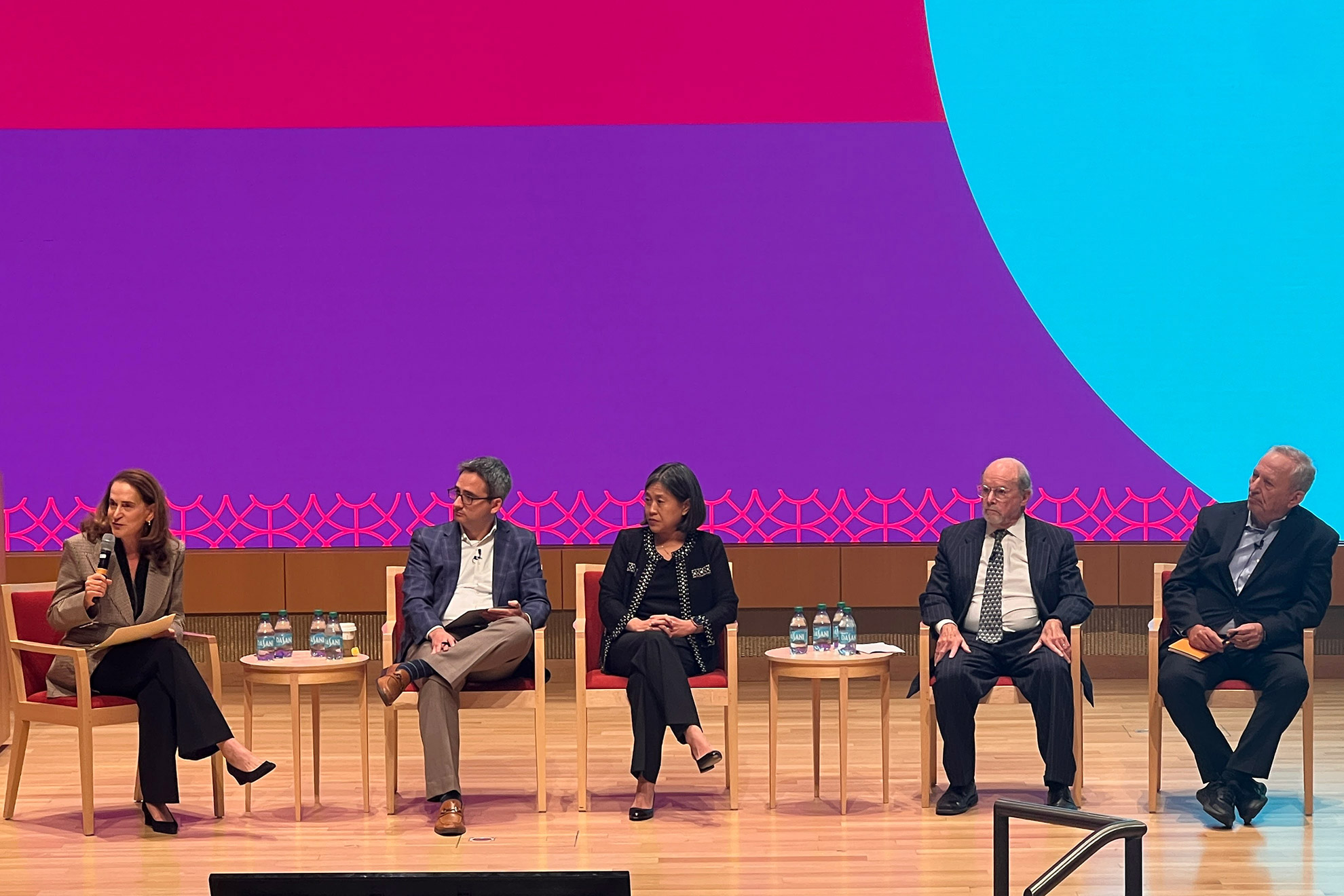
"Would Americans be better off if the nation shifted from its post-World War II free-trade approach to one that favors higher tariffs? That was the question posed to those attending an Institute for Business in Global Society debate on Wednesday evening, hours after the Supreme Court heard arguments in a highly anticipated case challenging the global tariffs imposed by the Trump administration."
"Arguing for "yes" were Oren Cass, founder and chief economist of American Compass and author of "The New Conservatives," and Katherine Tai, J.D. '01, a lawyer, former U.S. trade representative under President Joe Biden, and currently a fellow at the Institute of Politics at the Harvard Kennedy School."
"Much of the discussion centered on issues of balance and fairness. Cass called the current system "very imbalanced" and "not best for prosperity." Lawrence later pointed out that perfect economic balance is only achieved in a barter economy, where one good is directly traded for another. He concluded: "Nothing is going to guarantee balance." Cass went on to argue that the premise that free trade always promotes prosperity is "essentially wrong" and dismissed the idea that trade imbalances are self-correcting. Stressing that some kind of intervention is needed, he said "strategic tariffs are going to be higher tariffs.""
A shift from the post-World War II free-trade approach toward higher tariffs provokes sharply divided views. Proponents argue the current system is imbalanced, that free trade does not always promote prosperity, and that intervention via strategic tariffs will require higher tariffs. Opponents emphasize that perfect economic balance is unattainable except in barter economies and that nothing guarantees balance, warning of unequal impacts from tariffs. Policymakers and economists with differing perspectives participated, and audience opinion was split, with about 30 percent favoring change and 70 percent opposing.
Read at Harvard Gazette
Unable to calculate read time
Collection
[
|
...
]